Professional drummer turned to be the builder of dreams
Monaco Residents Magazine, Autumn Issue 2022
Sir Elton John’s favourite treehouse builder…
For 20 years now, Sir Elton John’s favourite treehouse builder, Paul Cameron, owns the oldest established treehouse business operating worldwide. He brings joy to thousands of kids and their families through his functional and playful treehouses and helps real estate owners to increase the value of their properties.
The name Treehouse Life might sound familiar to most of our readers since Paul Cameron and his company are long-term partners of the Monaco Residents Living in Monaco magazine. Visit Wilderness for more.
Paul is committed to excellence, but is also a great ambassador when it comes to the mental well-being of children. During the lockdowns in the past few years, most families faced the fact that children were limited to small spaces and mostly with digital toys. Treehouse Life, as its name suggests, aims to break down this barrier by offering active joy for the whole family. Paul and his team also build high-end treehouses for luxury leisure, which also add significant value to the properties.
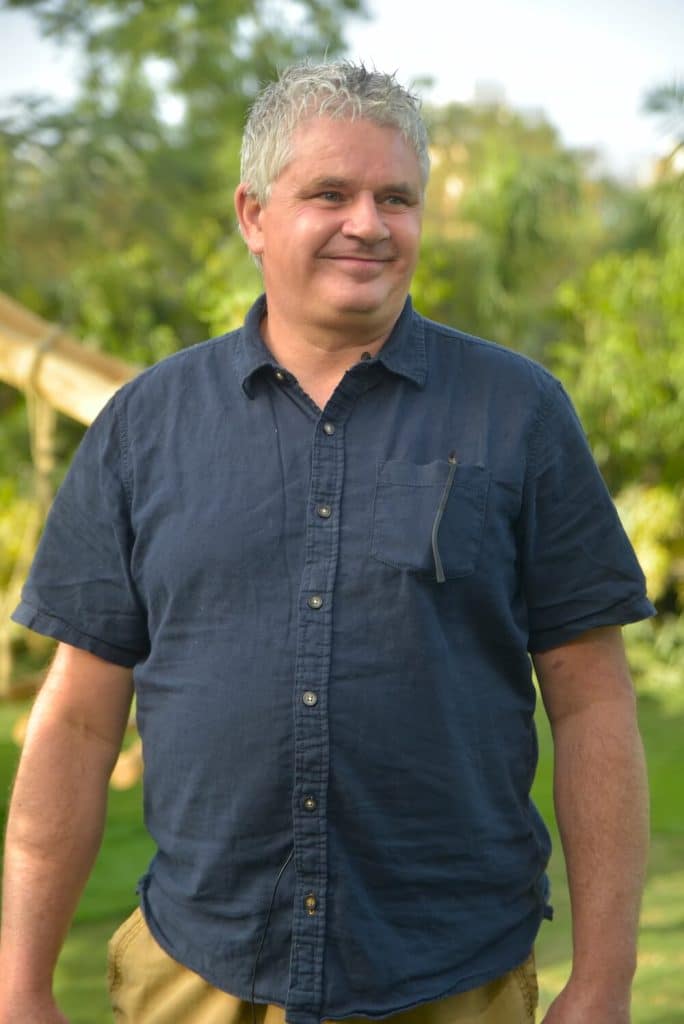
Do you remember the first treehouse you built?
“I’m a father of two boys and we had a garden with trees. I was not a carpenter or craftsman, but as many dads do, I decided to build a treehouse for my boys. Typical of me, I did not follow the rules, or any patterns and I didn’t copy,” – starts Paul with a great smile. “I just created it from my instinct which turned out to be successful and my boys loved the treehouse. I received lots of favourable comments back from the boys which helped me to think about the next steps.”
Professionally speaking, Paul is a musician and a drummer who graduated from the Royal College of Music in London. He started drumming when he was ten years old and after graduation, was immediately out into the profession.
Although Paul loves to learn new things and had his full mind and heart energised by creativity, after 20 successful years as a musician, Paul was ready to further challenge himself.
“I felt really passionate about being a drummer, a musician. But at the same time, I also felt that, in a way, it had not been a career choice and rather the music business had chosen me.”
Paul felt that he needed to learn about a subject and business was the most intriguing subject that interested him. So whilst he was drumming, he finished an open learning MBA. This was happening around the same time that Paul was doing the treehouse project with his young boys.
Where did the inspiration come from to start a business like Treehouse Life?
“As a family, we attended a big consumer show in London, the Ideal Home Show, which is a show for all house products. I was wandering around bored and not too interested in the show. I had just built a treehouse for my boys and I was looking for my next entrepreneurial activity. And this is how the light bulb moment came. I could not believe that in this big London show there was nobody selling treehouses, nothing at all. So I just decided in that moment right there that I would be back the following year with a small stand selling tree houses. This was in 2002,” – remembers Paul.
Being true to his promise, as always, Paul was back the following year, renting the smallest stand, a three-metre front shell stand in the show.
“I took the cheapest stand I could buy. I put a website and a brochure together and took lots of photographs of the treehouse that I had built for my two boys from different angles. I stood there for three weeks, 12 hours a day with my website and brochure, the photos, and just talked to people.”
Passion and authenticity paid off well. Thanks to his open character and the countless favourable comments from friends and family, Paul came away from that show with 41 projects in three weeks.
The drummer, who was working in the theatre, at the London orchestras, and in the film and TV business, and driven by his passion, saw a new opportunity, a wonderful new career.
At that time, Paul had just turned 40 years old, he had two boys and had everything he ever wanted career-wise. Notwithstanding all this, he understood that there was a business potential. With this passion in him, he decided to follow this path away from the music business.
“I loved every minute and had lots of very fond memories. But I was right at the top end of the music business with the London Symphony Orchestra, Royal Opera House, and Royal National Theatre. I was the musical director with the Shakespeare’s Globe Theatre in London and had a lot of film and TV experiences. Altogether 20 years. I was thinking about being 40 and what to do for the next 20 years. I could just stay at the top, and then I also had this real excitement at the same time for a second career, a new path. I’m a big believer that you can have two or more careers in your life. They teach you at school to focus on one path in life. But that’s never been my style.”
How difficult was it for you to shift the mindset from an artistic to business activity?
“As a musician, you understand that you are self-employed, you are constantly entrepreneurial in the profession that you do every day and week. So my mindset was the right one. I studied MBA, put all of this together and stepped down the path of treehouses.”
In 2002, Paul started the treehouse business with nothing, yet in three weeks got 41 orders. One year later, in 2003, Paul had the largest stand at the same show in London.
“We had 60 square metres right at the front as you walk into the show. We had three treehouses on our big stand. So that was the transition in one year.”
You discovered a market gap, but was it easy to address it?
“At that time, it certainly felt very pioneering, very new. As a businessman, I learnt a huge amount because, of course, there was no book or manual that I could go to on “How to run a freelanced treehouse business”. I remember that there was myself and another company that have since closed its doors. So we became the oldest established treehouse business in the United Kingdom.”
As is typical in many businesses, Paul’s company grew very quickly and soon he had to hire people to delegate the tasks. Paul who always considered himself a creative guy, the leading source of energy, passion, and inspiration, wanted to be the one responsible to fulfil the customers’ “dream”.
He hired a co-director, an experienced carpenter, who however turned out to bring a big lesson to him. Paul had to learn through real-life experience what is taught in the first chapters of every business book. His co-director turned out to be selling into a competitive company.
“It was a really painful realisation for me, but in the end, it had a positive outcome. They had tools and he was a carpenter, so on paper, they had the advantage. However, they had two key ingredients missing – creativity and passion. Thanks to these, I am proud to say that 20 years later I’m still here. So that was chapter one of business I learned very quickly,” – laughs Paul.
There are many businesses and big entrepreneurs such as Sir Richard Branson, who talk about the failures that led them to success. As Paul’s company became busier and overloaded with many projects, one of these early learning lessons was to manage human capital.
“I then became ferociously independent and very strong about who I was and what I wanted the business to be. I learned about how to work with other people in this business but I also learned and discovered that there was nobody before me to learn from. Who are we selling treehouses to? How do we sell them? We’re not selling sheds or outdoor offices, we’re selling treehouses.”
Paul was always dealing with personal direct contacts and thanks to his character, the business doubled in each of the next three years, reaching out to very high-profile clients.
“We doubled our sales value so we took the business up some big stages. Instead of selling lots to many, we were deliberately selling to very few but excellent clients which have driven the business model forward. My passion is to work hard on selling and trying to find the fewest number of clients that we can, which often shocks people because business is often about finding as many clients as possible. Because of this, you can understand why we have been brought together with some great clients. It’s not just rich clients but clients that can fully explore their dreams and inspiration, allow us to be artists and have a big landscape. This has allowed us to be able to have really powerful connections.”
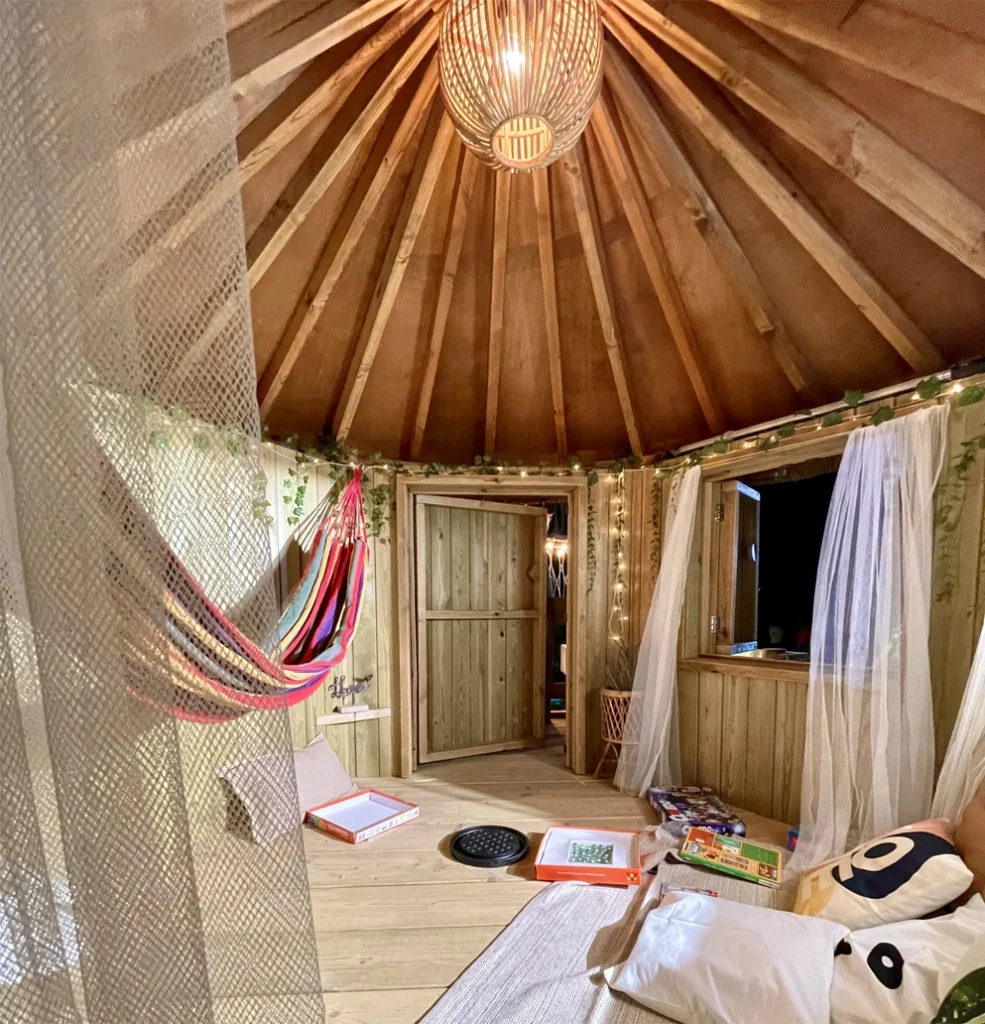
Is it difficult to cater to the needs of celebrities and UHNW clients?
“Because of the nature of our product and the values it represents, I am glad to say that I have a relationship, that even their own staff don’t have with them. I sit around the breakfast table with somebody who is the chief executive of a global Fortune 100 company and we talk about their children and family. It is always a deeply emotional topic and there’s a really close connection.”
Paul has the luxury in life to work in a business that he is truly passionate about, being able to drive that at a really personal level and embed it into everything he does. His personality and character, which oozes out in every treehouse, has Paul’s signature all over it.
His two sons, Charlie (24) and Elliott (27) are also following the footprints of Paul, but on different levels. The youngest son, Charlie, is now running operations on site and is working toward being the Operations Director.
Paul’s older son has been in the business for many years and still works with his father on the big, exciting Rope Bridge projects that they do when they go to India or Utah for instance. But Elliott has now just finished studying Music and Sound for Film and TV, safeguarding his father’s musical DNA.
“We are a true family business and it is wonderful that both my boys are close to what we do with the treehouse. But then Elliott has also picked up on music, a new music style, not my music,” – laughs Paul.
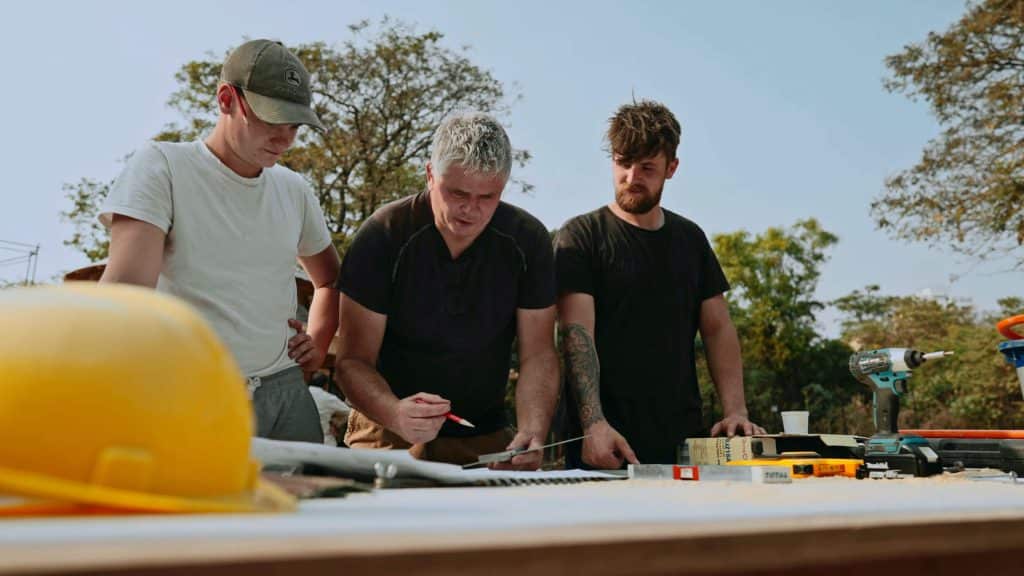
What is inspiring is that on one level, the business is very much a family business, but at the same time, Paul has also a very worldwide international focus.
“We’re really good at connecting across countries and boundaries. Our goal is to bring families closer and connect children and families with nature.”
One of the recent international projects completed by Paul and his team was in Mumbai, India. The client company is the biggest land bank in India, but they were creating in the centre of Mumbai, a place for people to live. As they were building big high-rise apartment buildings, approximately 650 apartments in about 15 tower blocks they had to face the fact that the land that they have is in the middle of the chaotic part of Mumbai.
Mumbai is known for its poverty and its shanty accommodations where people are living with almost nothing. But in the centre of Mumbai, there is an amazing property covered with trees where they decided to create a space where families can live.
“It was a very exciting project. They got excited when I arrived with my two sons because that really resonates with the culture in India, as it does in the Middle East, where you have real family-oriented communities. Living in England, we think differently when it comes to the question of family. But if you go to other countries such as India and the Middle East, this question is really deep. Cultures where family is key is truly important,” – concludes Paul.
For any real estate developer, the key aspect is to add value to the land. Therefore, the Indian company decided to create a lake and a cycle track and some outdoor spaces such as woods and a park, basically creating a space where families can live beyond the apartment or the house. They also wanted a centrepiece as a majestic treehouse for children.
You are a European company, how did an Indian business find you? Probably hiring an overseas business is not the most cost-effective solution, especially when it comes to the transportation of heavy and large elements.
“Yes, a very good question. All of our business is mostly generated through our website, so that’s the initial connection. We’re very fortunate because we have a product that’s so awesome in photographs and pictures, you don’t need much explanation in terms of words. So that’s the connection.”
The real estate developer knew that their target group is families, therefore, they wanted to build a treehouse as the brand value of the apartment compound. They wanted that when people come to visit their site to look at the apartments and the view, they can immediately see the centrepiece treehouse motivating them to come and live there.
What is the benefit of a treehouse over a traditional playground?
“It’s a treehouse,” – laughs Paul. – “It’s not a playground and not just an activity.
It’s also not just a slide and spinning around roundabouts or a zip wire.
It’s a treehouse.
It’s a place for imagination and creativity. That is the true connection because it allows kids to dream and let their fantasies and imagination bloom. A treehouse is a great tool to move children away from video games and to offer them creative freedom and a shared activity with other kids. It is also great for their mental health.”
Is it easy to realise such a social impact project from a distance?
“There are two parts of our job, the planning and preparation, and the installation. For the planning, we put the drawings, designs, and 3D modelling together. We do not need a physical meeting for this because everything can be done by email. Once the plan is accepted, we pre-produce everything that you see in our workshop in Surrey, England.”
What was the volume that you shipped to India?
“Since we pre-produced everything in our workshop, there were 3,800 items labelled, cut, and prepared which filled every inch of a container. Obviously, shipping is easy this way. After this, our small team flew from England to India to lead the building of it. We built this in 15 days.”
Paul’s biggest pleasure is to see how people become passionate about the projects because that’s infectious. They can understand and feel the excellence and perfection that Paul’s niche treehouse company seeks.
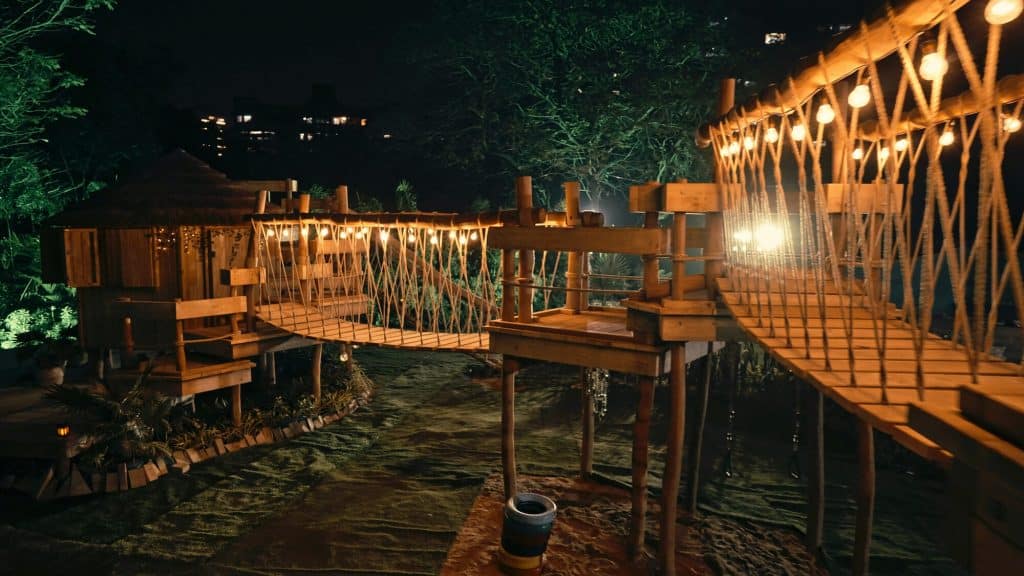
Do you have any plans to offer do-it-yourself types of solutions?
“We are already talking about some more projects globally, but also we have 20 years of heritage with lots of brand value, character, and personality within the business. We are really focusing on how we develop the business on a global basis. One of the possible future directions is to offer modular, flat-packed, ready to install solutions at a different price structure.”
Your brand is a niche, are you not afraid that you will lose this value once you grow?
“The modular product is different than what we do now with custom treehouses. We are not interested in having hundreds of clients. We want the right clients and to keep that ability to communicate directly with them so that people can see and feel that passion and give that to their children too. So we work with these sort of customers. We also work directly with big architectural practices and commercial projects. I want to keep finding a niche all the time. I don’t ever want to do what everyone else is doing. I want niche and I love that,” – giggles Paul.
If you would ever produce ready-made, modular treehouses, would you be scared to lose your creative inspiration?
“I love when a business grows and has lots of opportunities. Of course, there will be the time when there might be a separate business that produces and manufactures a version of what we do. Although I may be involved with that business, I will perhaps not be running it because I’m not interested in manufacturing and production as a different style of business. I will probably turn up when needed to just bring in and lead some inspiration and share some design elements. But manufacturing is not where my real passion lies.”
How would you describe your passion?
“My passion is heading almost in the opposite direction, a different path toward a continual seeking out of wonderful clients, the sort of clients that connect with us as a meeting of ideas and passions. This way, we’re not selling to clients we’re actually giving them the opportunity for some deep experiences with their family and family time.”
It is very interesting to see that many grandparents are becoming clients of Paul. They often want to create something special for their grandchildren and with it, also motivate them to spend more time in the grandparents’ house.
“I love to connect with grandparents because, of course, grandparents are possibly the last generation to truly know what childhood is. Most 18 year olds today know mostly about technology and social media, which is fun too but different from what I remember in my childhood. And it’s worrying in some ways. Questions come up like – have we lost the childhood that we had before? And of course, grandparents are the owners, the gatekeepers of that other vision.”
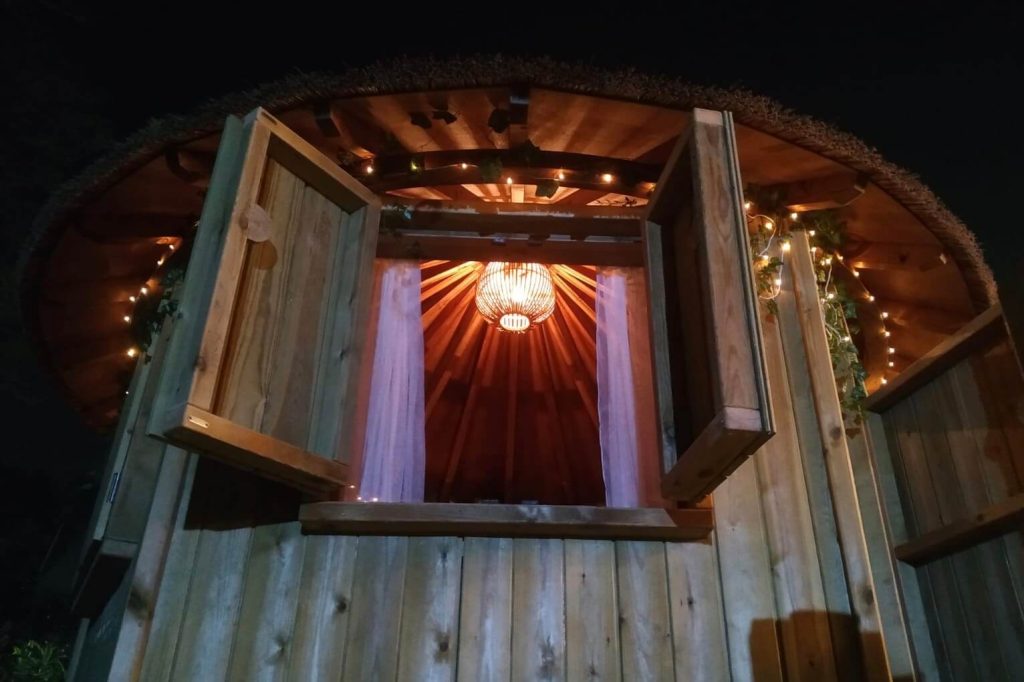
Paul believes that we have almost lost the childhood that we grew up in. Naturally, grandparents are looking to hand over their legacy to their grandchildren. No doubt, it’s a really interesting and important market at the same time.
Grandparents often have an old family house with a big garden and they’re still living there, while everyone else has left or moved out. They might have three, seven, or even eight grandchildren, so they can invest at a price. When they think of the number of grandchildren, then it’s a sensible purchase. And of course, the grandchildren are then motivated to come and the grandparents can spend more time with their grandchildren. It brings the family back together.
Grandparents can gift their grandchildren a treehouse, which then talks to them and sparks the imagination of every child.
“Our business has a really interesting dynamic. We’ve got to think about how we keep children entertained and of course, all their friends. You can’t just keep them satisfied by putting Disney films on. You’ve got to introduce some new ideas and values. But for us, it’s really about focusing on who our clients might be, not just chasing money. It’s not about that.”
How would you validate your price tag?
“First of all, I don’t think we’re expensive. We’re very wholesome in how we approach that,” – starts Paul. – “A quality and long-lasting treehouse is high-value. But of course, in the context of what might otherwise be two or more family holidays, the treehouse is there for 15 to 20 years. So, like all of these things in life, if you can see the context of what it is and the benefits that it brings, it’s not expensive.”
Paul Cameron is one of those very few people who never gave up on his inner child and who keeps on creating positive inspirations for the next generation. As we are living in a digital era where life is technology-driven, it is valuable to have companies like Treehouse life, that bring back a glimpse of our childhood.
The Living in Monaco team is truly thrilled to help Treehouse Life make its dream come true and have a positive social impact in the Principality of Monaco and the South of France region.
Team THL
Ascot Awards Berkshire Castle Christmas Present Client Commercial Client Cotswolds Côte d'Azur Daily Mail Dominican Republic Essex Financial Times Glamping Hampshire India Italy Jersey Kent Lancashire London Monaco National Trust Northampton Northumberland Paul Cameron Portugal Press Feature Preston Private Client Private Land & Estates Quebec Resort Rope Bridges School Scotland Seychelles Society Magazine Somerset Suffolk Sunningdale Surrey Surrey Life Sussex Testimonial The Independent The Sun The Telegraph Treehouse UK Visitor Attraction Yorkshire




